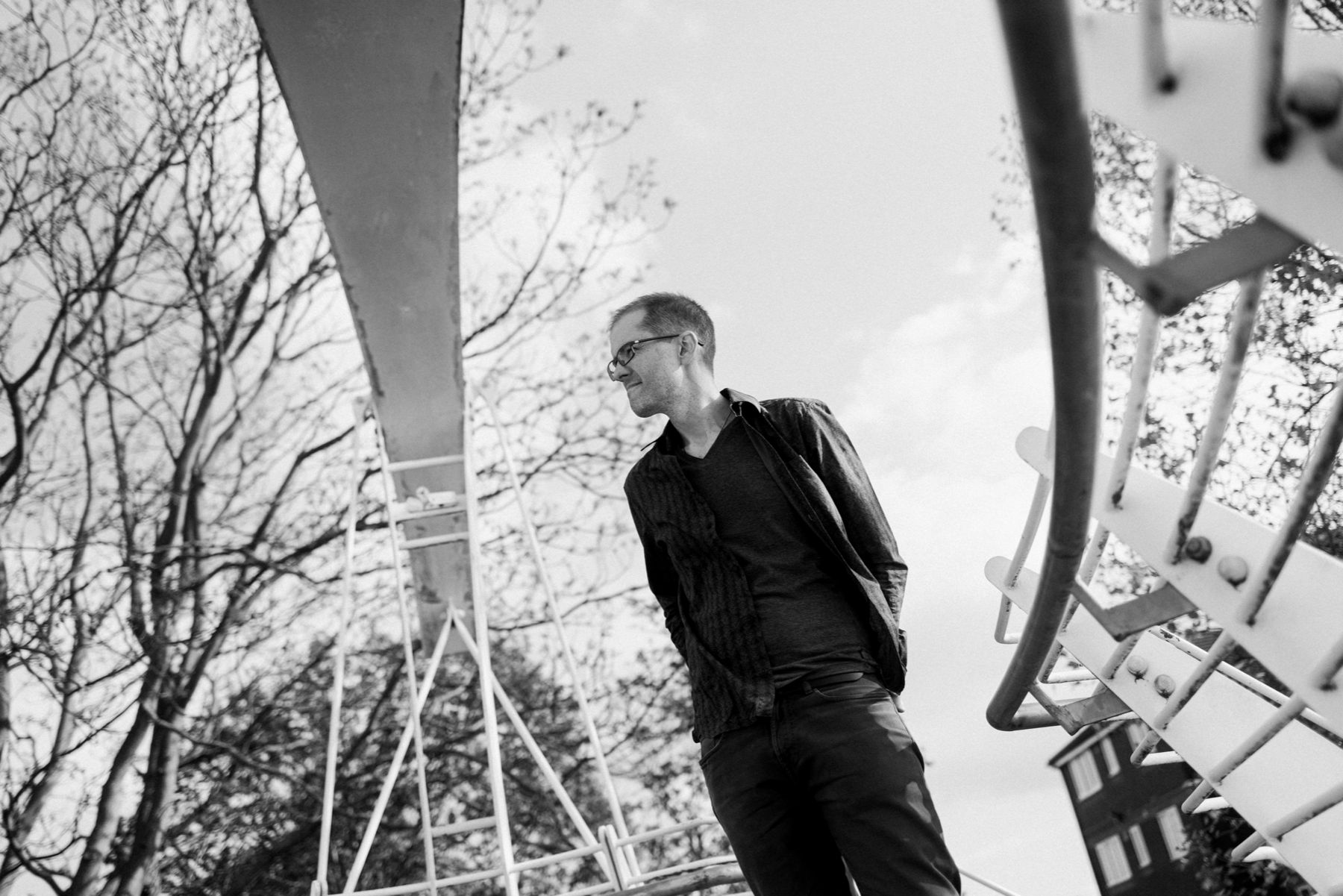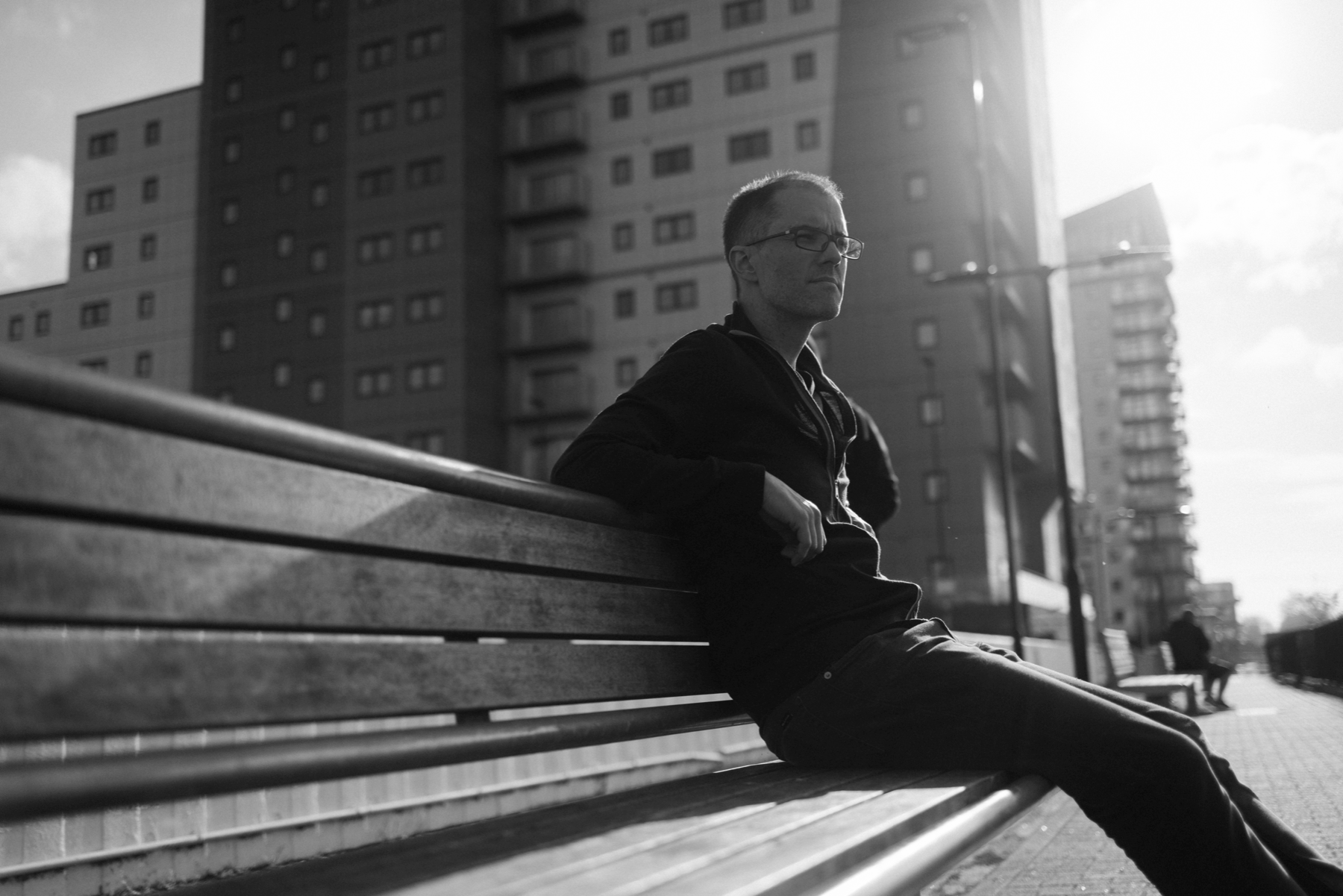Tristan Jakob-Hoff
How does a self-confessed “classical music geek“ end up writing music for movies and video games? We spoke to composer TRISTAN JAKOB-HOFF, who explains why his new album runs the gamut from doom jazz to drum’n’bass and why he is “always looking for new people and ideas“ to inspire him
Before he dedicated himself to music, Tristan Jakob-Hoff (pronounced YAH-kob-hoff) wanted to be a film director. He made his first short film when he was 14 years old, shooting on VHS in his backyard—a literal zoo thanks to growing up with a veterinarian father—and stitching it together on two VCRs in his high school’s media studies lab. That “lost cinematic masterpiece” (his words) also marked the first time he ever tried his hand at syncing music to film: “Imagine one of those high-energy foot-chase sequences but set to Mussorgsky’s Night on a Bald Mountain,” he says, grinning. It was this experience, he thinks, that sparked his lifelong interest in telling stories through music.
A “classical music geek“ from his early teens, he completed his degree in composition at the University of Auckland at the age of 19 and moved to London a year later, where he additionally picked up a diploma in piano performance. After several years of writing about music, film, theatre and video games for the likes of The Guardian, BBC Music Magazine and Eurogamer, he finally decided to pursue music full time in 2016, when Edition Peters agreed to publish the orchestral arrangements of Rachmaninov’s Preludes he had been working on in his spare time.
That was also the year he started to get involved in film music. “My very first job in the film music world was to basically reconstruct, note-by-note, David Arnold’s enormous, 500-page handwritten score for Independence Day. It was for a live-to-projection performance at the Royal Albert Hall, so the score—which had been massively chopped up in post production”had to be completely rebuilt so it would fit the finished picture.” This would prove to be an “enormously educational” six-month undertaking, as would a subsequent opportunity to edit the score of Casino Royale for live performance in 2018.

The new album has got stuff on there I never would have thought to write. It’s a real grab-bag of styles and ideas but hopefully it communicates a coherent-slash-somewhat-hallucinatory journey to listeners.
Whether he’s scoring big action-adventure scenes or laid-back jazzy numbers, poignant lullabies or unsettling soundscapes, he says his focus is always on one thing: storytelling. “I think that’s why I’m so drawn to film and TV and theatre,” he explains. “Those art forms take you on this emotional journey through time in a way that, say, a painting or some other static art form can’t really do. Music is the same, it unfolds left-to-right, start-to-finish, manipulating the way you feel from moment to moment and hopefully arriving at a place where you feel like you’ve actually lived through something. It makes it this incredibly powerful empathy engine.”
A big film fan, he tries to watch a hundred or more movies a year, although he says it’s getting “increasingly difficult to find the time with the sheer amount of insanely good TV out there these days.” He’s nevertheless very proud of the 250 or so film reviews he’s published on Letterboxd, “especially the ones I caught at film festivals and pegged as masterpieces before anyone else got to see them,” he laughs. He’s also an avid gamer (“I could wax lyrical to you for hours about how great Garry Schyman’s BioShock scores are”)—and a “slightly obsessive” immersive theatre fan.
“I saw [immersive theatre pioneer] Punchdrunk’s 2013 show The Drowned Man thirty-four or thirty-five times,” he says with a slight grimace. “It just blew my mind. It was like walking around inside a film, or indeed inside a dream.” His upcoming second album, following 2021’s collection Box of Tricks, is entitled Fake Flowers and is, he says, “directly inspired” by Punchdrunk’s most recent show The Burned City, a retro-futuristic retelling of the Trojan War staged in an old artillery museum in south-east London from 2022-23. “The new album has got stuff on there I never would have thought to write without that inspiration.” Menacing synthwave tracks rub shoulders with melodic drum’n’bass, while brooding jazz numbers sit alongside more characteristic orchestral material recorded in Hungary with the Budapest Art Orchestra. “It’s a real grab-bag of styles and ideas but hopefully it communicates a coherent-slash-somewhat-hallucinatory journey to listeners.”
What’s next for Jakob-Hoff? “Who knows?” he says. “But I’m always looking for new people and ideas that inspire me. I don’t really mind whether it’s a cool short or a video game or a feature or a play, as long as there’s an interesting idea behind it. Collaborating with people who have an original vision and getting to bring your own crazy ideas to the table, that’s where the magic is born.”
